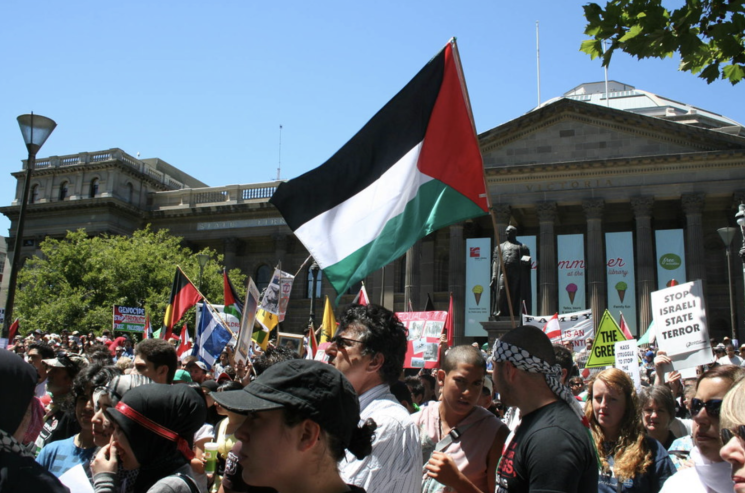
By Rebecca Do
On the news, we are shown war-torn land, people encased in rubble in a faraway place. Families are destroyed, bloodlines wiped out and we have the displeasure of watching it occur in real-time, but we are privileged enough to see it through the eyes of journalists instead of living it.
Said faraway place is not so far for some of our students here, at Fountain Valley High School (FVHS). Take the time to listen to some of our very own Middle Eastern-North African FVHS students who the ongoing war in Palestine has impacted.
Tala Dawood, Senior (Palestinian-Lebanese)
“I’m half Palestinian and my dad’s side of the family lives in Palestine. My grandfather’s side is from Gaza and my grandmother is from the West Bank. There are family members there who I have never met in person because it is nearly impossible to get in and out of the country,” Dawood said.
Dawood recalls a strict entry process controlled by the Israeli government. Dawood and her family recount her father and uncle being held at the border for around two days due to their Palestinian identities as a toddler. Her mother, having no resources from outside that fateful waiting area, was there as well.
“Unfortunately, I’ll never get to meet them because some bombings in Gaza were literally on the front doorstep of my family’s houses. My dad is one of those immigrant parents who built a house in their home country that we have barely known about, but the house that he built was leveled to the ground,” she said.
“We lost several members of our family because of the bombings. My dad would get multiple calls a week saying that another cousin was in the middle of an explosion. We tried as hard as we could to keep in touch with as many people as possible but we lost contact for a while, so I have no idea if the rest of my cousins are dead.”
“My family’s houses and buildings were blown up and leveled so the people were simply looking for a place away from the bombing. They were not being condensed into ‘human shields,’ they were trying to leave the areas that were being attacked because the only thing left there was rubble and the people who couldn’t make it. They tried to go to the border of Egypt but they had closed it, trapping the Palestinians in a war zone. [My cousin] Noor begged us to see if there was something we could do to bring her here or if our U.S citizenship could be transferred like when a parent gives their child citizenship of their country.
“Misinformation and ignorance are the most dangerous things that impact our society and the way we treat each other,” Dawood said.
Isa Siddiqi, Senior (Pakistani)
“My relationship with Palestinians in general [lies] in our community — the Muslim community.
“It’s an important part of our identity. It’s been a big part of our community, the fight for the ceasefire and all that and all that stuff. Some of the leaders in our community from Palestine have lost a lot of family members. I’d see how their families are affected and [that helps us in] being able to stand with them in protests.”
Siddiqi believes that educating yourself on the conflict and standing with what you believe is right is key to fighting injustices faced by the people in the Middle East. He believes that by educating yourself, you can spark change — whether that be at a grassroots level or a national level.
“We’re Muslim – the third holiest site in Islam is in is in Jerusalem. So [the conflict has] always had importance. [The conflict] not something new. It’s been happening like that for a while, since the 1940s, 1950s, so I guess it’s always been an intrinsic in a large part of the Muslim community. You’ll find most Muslim kids are very vocal about it, and even if they’re not vocal about it, they definitely share [similar] sentiments. It’s definitely a big part of being Muslim in America.”
“Know where your money’s going,” said Sidiqqi. He states that these conflicts are oftentimes affected by our tax dollars, and that knowing who we’re electing will make all the difference.
The verdict?
Look at the larger picture. Familiarize yourself with the ins and outs of the conflict before conceiving a stance of your own. That’s the very simple lesson we should be taking from not only this war, but from every politically nuanced event and issue onward.





